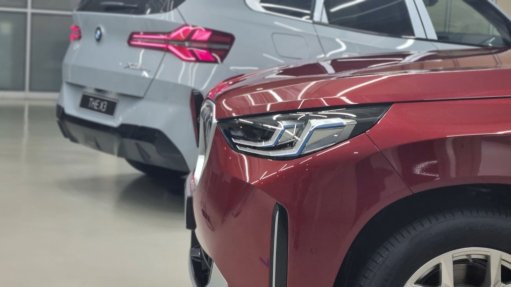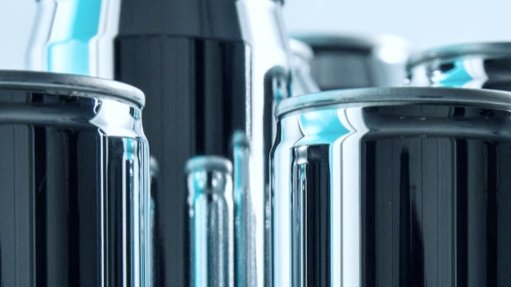It’s cash over conscience for enablers of autocrats
Africa is not short of autocrats, but what rarely makes the headlines is that some glossy corporations from the Global North act as their enablers, padding their own bank accounts while propping up these repressive individuals.
Court cases and media reports point to France’s PNB Paribas having once been very much part of this unsavoury club. From the late 1990s until 2009, it provided letters of credit that allowed Omar al-Bashir, the now deposed long-serving Sudanese military ruler, to honour import and export commitments.
But the chickens are now coming home to roost for the French banking giant. Claiming the letters of credit helped finance violence perpetrated against a part of the country’s population while Bashir was in power, three Sudan-born plaintiffs who are now naturalised Americans sought redress in a New York court, managing – through testimony describing horrors committed by government soldiers and a militia group – to convince the jury that they were entitled to damages. Amounting to $20.75-million, these were awarded late last month.
The plaintiffs’ lawyer moved fast to file a motion requesting the court to add pre-verdict interest, calculating that the payable amount would increase to more than $40-million.
PNB Paribas has indicated it will challenge the judgment.
Media reports suggest that things could get worse for BNP Paribas: the verdict opens the door for more than 20 000 Sudanese refugees in the US to also seek damages. Analysts at Canadian corporate and investment banking firm RBC Capital Markets suggested in a broker note last week that “there might be an argument that BNP aims to settle in order to avoid larger payments as a result of court rulings”. They pointed to estimates by Bloomberg that the settlement could be as high as $10-billion.
This is not the first time BNP Paribas has been caught up in a controversy of this nature. In 2014, it admitted to having conspired from 2004 to 2012 to violate two pieces of US legislation – the International Emergency Economic Powers Act and the Trading with the Enemy Act – by processing billions of dollars through the US financial system on behalf of the Sudanese, Cuban and Iranian regimes, which are subject to American sanctions for human rights abuses, support for terrorists and other violations. According to records at the US Attorney’s Office, it agreed to pay financial penalties exceeding $8.9-billion.
What the BNP Paribas case highlights is that Western multinationals may intentionally or unintentionally become part of the infrastructure of autocratic rule in poorer countries. The pattern works like this: a regime in the Global South lacks financing or credit but needs to trade, and a Western bank or firm steps in, attracted by huge potential profits.
This facilitates trade and financial flows, with the regime using the revenue or access thus gained to fund State patronage and suppression of the opposition, thereby prolonging its stay in power. The corporation continues to profit from this arrangement, while the regime’s accountability mechanisms continue to weaken.
In such an arrangement, the corporation is not necessarily corrupt in the narrow sense of paying bribes; rather, it is complicit through normal business functions, such as facilitating trade finance or providing services, which maintains operational continuity. The result is that autocrats not only survive; they thrive, backed by global capital. Bashir, for instance, was in power from 1989 – when, as a brigadier- general in the Sudanese army, he toppled a democratically elected government – until his own ouster in 2019.
So, by enabling Sudan to gain access to the global dollar system and facilitating trade flows, BNP Paribas effectively became a cog in the machine of repression and survival of Bashir’s government. While the regime benefited militarily and politically, the bank benefited financially.
What this case does is challenge the narrative that the Global South’s only problem is bad governance. Corporate players from developed countries – the likes of BNP Paribas – also matter. Their continued involvement in Western-style business operations in autocratic countries is part of the broader problem we face.
While we are at it, we should not tire of calling out autocrats in places such as Cameroon, where a 92-year-old has just ‘won’ a consecutive eighth Presidential term, or Tanzania, where credible opposition candidates were jailed or barred ahead of elections on October 29. Capturing the absurdity of the Tanzania election, a brilliant Kenyan newspaper headline screamed on election day: ‘Samia vs Suluhu’ – a reference to President Hassan’s first and middle names.
Article Enquiry
Email Article
Save Article
Feedback
To advertise email advertising@creamermedia.co.za or click here
Press Office
Announcements
What's On
Subscribe to improve your user experience...
Option 1 (equivalent of R125 a month):
Receive a weekly copy of Creamer Media's Engineering News & Mining Weekly magazine
(print copy for those in South Africa and e-magazine for those outside of South Africa)
Receive daily email newsletters
Access to full search results
Access archive of magazine back copies
Access to Projects in Progress
Access to ONE Research Report of your choice in PDF format
Option 2 (equivalent of R375 a month):
All benefits from Option 1
PLUS
Access to Creamer Media's Research Channel Africa for ALL Research Reports, in PDF format, on various industrial and mining sectors
including Electricity; Water; Energy Transition; Hydrogen; Roads, Rail and Ports; Coal; Gold; Platinum; Battery Metals; etc.
Already a subscriber?
Forgotten your password?
Receive weekly copy of Creamer Media's Engineering News & Mining Weekly magazine (print copy for those in South Africa and e-magazine for those outside of South Africa)
➕
Recieve daily email newsletters
➕
Access to full search results
➕
Access archive of magazine back copies
➕
Access to Projects in Progress
➕
Access to ONE Research Report of your choice in PDF format
RESEARCH CHANNEL AFRICA
R4500 (equivalent of R375 a month)
SUBSCRIBEAll benefits from Option 1
➕
Access to Creamer Media's Research Channel Africa for ALL Research Reports on various industrial and mining sectors, in PDF format, including on:
Electricity
➕
Water
➕
Energy Transition
➕
Hydrogen
➕
Roads, Rail and Ports
➕
Coal
➕
Gold
➕
Platinum
➕
Battery Metals
➕
etc.
Receive all benefits from Option 1 or Option 2 delivered to numerous people at your company
➕
Multiple User names and Passwords for simultaneous log-ins
➕
Intranet integration access to all in your organisation

















